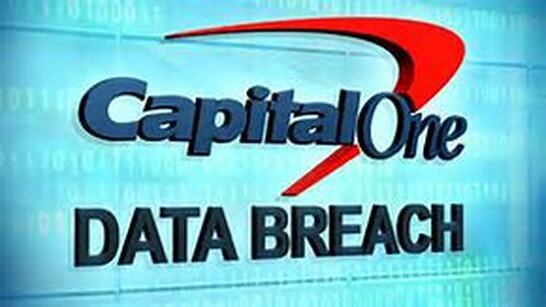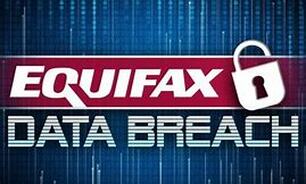|
Identity theft protection may be offered free of charge by some nonprofit organizations, but the costs associated with identity theft protection services typically provide monitoring and recovery services as well as regular access to your credit reports or credit scores.
Visit IdentityTheft.gov to locate free identity theft protection services and assistance. What is Considered Identity Theft? Identity theft is a crime that can be prosecuted as a misdemeanor or felony depending on the State and severity of the offense in which a criminal fraudulently acquires all or a portion of personally identifiable information (e.g. social security number, driver license number, etc.) for the purposes of impersonating someone else to unlawfully obtain money, property, credit, services, U.S. citizenship, or to commit acts of domestic terrorism. Identity theft may also be criminally charged and prosecuted as impersonation or fraud. The dollar amount or value of stolen property is the distinguishing factor between a misdemeanor or felony. State law establishes the minimum amount or value of the property usually between $500 to $1000 to be considered a felony theft. According to Smarter Shredding, Inc. the following facts are related to identity theft:
But identity theft crime is not just about credit fraud. A criminal armed with your personal information like social security numbers and your date of birth has unlimited access to wreak havoc on every area of your life and for many years to come. Consider what can be done with that type of information? For example, filing tax returns, stealing money from your bank or investment accounts, getting medical care, or even committing other crimes, to name a few. Personal information like your name, birthdate, and social security number are permanently attached to your identity and will never change. That is why data breaches are so problematic when credit files are compromised. Criminals can assume and use your identity for an indiscriminate number of years long after the breach. Identity theft protection will either prevent or, at least, minimize those damages. Consumer data breaches are more common than most realize. Since 2008, there have been eight (8) major data leaks affecting over 100 million consumers each. The two most recent, Equifax in March 2017 and Capital One in July 2019 caused consumers to become increasingly concerned with identity theft and securing identity theft protection. In fact, the growing demand for identity theft protection is largely due to aroused consumer awareness of the nearly incessant corporate data breaches in recent years, most scarcely reported.
The Capital One Data Breach
The latest to fall victim to a data hack was Capital One, again, affecting 100 million people in the U.S. and 6 million in Canada. Capital One alleges that the breach was manufactured by a single software engineer. Paige A. Thompson, formerly employed with Amazon Web Services (AWS). It is reported that Thompson was able to exploit a misconfiguration in Capital One’s AWS server (a credit application firewall stored on an Amazon Web Services cloud) through an incognito browser and private IP network which conceals one’s online activities to access the data. Amazon confirmed Thompson’s employment which ended in 2016, yet the breach is alleged to have taken place between March and July 2019. The Capital One breach is probably the most egregious because it impacted individuals and small businesses that applied for credit with the company during an extended period of time between 2005 and early 2019. It also involved a more extensive theft of consumer records that would be most advantageous to criminal assumptions of consumer identities. Financial analysts surmise the potential for political and regulatory actions including penalties up to $150 million against Capital One as the compromised server was under its direct management. According to Capital One’s statement, approximately 140,000 social security numbers and 80,000 linked bank accounts were compromised. Due to the size and frequency of data leaks, cyberattacks have become the biggest threat to the U.S. financial system. Most companies have taken great strides in cybersecurity to prevent outside attacks but have little defense against inside hackers. As a result, consumer data vulnerabilities will come into question among tech companies, cloud firms and banks as to how they will limit and control access to consumer data and detect potentially rogue employees. In the meantime, consumers must be proactive in protecting their identities and minimize the damages of criminal activity. The Eight Largest Data Hacks of the 21st Century The following are the eight (8) largest data hacks of the 21st Century, according to Markets Insider (July 2019).
Number of people affected: 3 billion user accounts Data released: Names, email addresses, dates of birth, and phone numbers
Number of people affected: 500 million Data released: Names, contact information, credit card numbers, passport numbers, Starwood Preferred Guest numbers, and travel information
Number of people affected: Over 412 million Data released: Names, email addresses, and passwords
Number of people affected: 145 million Data released: Names, addresses, dates of birth, passwords
Number of people affected: 143 million Data released: Social security number, birth dates, addresses, and driver license numbers
Number of people affected: 134 million Data released: Credit card information
Number of people affected: 110 million Data released: Credit/debit card and contact information
Number of people affected: 106 million Data released: Names, addresses, self-reported income, phone numbers, some credit card data status including credit balances and limits, payments, and transaction history –credit card numbers and log-in credentials not compromised.
How to Freeze or Lock Your Credit to Protect Your Identity
The best way to protect yourself against identity theft is to place a security freeze on your credit and the service is offered by all three major credit bureaus free of charge. A security freeze is designed to prevent credit, loans and services from being approved in your name without your consent but may also delay or interfere with or prohibit the timely approval of any subsequent requests or application you make regarding new credit, loans or services. Take the following two (2) steps to freeze your credit:
Please note: Credit Karma and Credit Sesame only monitor your Vantage credit score and not the FICO score which is more commonly used by lenders. The Vantage Score will not be an accurate depiction of your credit rating and how lenders determine risk in extending credit. If you decide to purchase credit monitoring services with expanded features (e.g. security freeze, identity theft insurance, etc.) it is not necessary to purchase more than one (1) service at a time. Also, make sure that you have access to your credit report and score multiple times a year upon request with your purchase.
To request a credit freeze by mail, you must submit your request by certified mail with all applicable attachments as required per each credit bureau.
Each credit bureau offers a Fraud Alert option which allows you to keep your credit file open to creditors but receive notifications when a credit lender accesses your credit file or opens a new account in your name. The Fraud Alert option is used as a more convenient identity theft protection strategy to avoid going through the process of lifting a credit freeze each time you apply for new credit or loans. How to Lift, Unfreeze, or Thaw a Credit Freeze A credit freeze may be temporary or permanent at your discretion. But, once you have frozen your credit and decide to apply for a new loan, line of credit, or utility account the freeze must be lifted for lenders to access your credit file. If you opt to lift a credit freeze by phone or mail, you will be required to provide a PIN number, password, or other personal information to verify your identity. The PIN number will be provided to you at the request for a credit freeze. If you lose or forget your identifying information (e.g. PIN, password, etc.) you may access this information by visiting the credit bureau’s website (listed in the chart above) or by phone. Use the chart above to contact each credit bureau for specific instructions. The Identity Theft Protection Loophole The loophole in consumer financial records involve the lesser-known credit reporting agencies that store and share consumer credit and other important financial information. The number of these “specialty” credit reporting agencies and the extent of data they retain remains a looming threat to consumers even with identity theft protection strategies in place. There are literally dozens (about or at least, 30) of said credit agencies according to a CBS News report (May 2018) that retain credit files on consumers. It is recommended that you contact each of these agencies that may be retaining data files of your financial information to initiate a credit freeze or lock as appropriate. One of which may apply to most everyone is the National Consumer Telecommunications and Utilities Exchange (NCTUE). The National Consumer Telecom and Utilities Exchange (NCTUE) is a member association database, powered by Equifax through which its “member companies” exchange consumer source-anonymous information such as:
The NCTUE association also share consumer payment data from utility bills, including:
NCTUE is one of many credit reporting agencies that warehouse consumer credit, payment, and banking data to determine risk in extending credit or opening new accounts. Consumer data is stored with these “specialty” credit reporting warehouses for a myriad of transactions, including but not limited to:
A link is provided below for a list of “specialty credit reporting agencies” published by the Consumer Financial Protection Bureau. It should be noted that although NCTUE is powered by Equifax, it is technically a separate organization from the credit bureau and freezing your credit file with Equifax does not affect your NCTUE file. This means that criminals may still access and open new utility, cable, or telephone accounts in your name if you fail to take measures to protect your identity with NCTUE. You will need to contact the National Consumer Telecom and Utilities Exchange (NCTUE) to place a security freeze on your Disclosure Report. The three options for sealing your Disclosure Report with NCTUE are:
You may contact NCTUE to inquire if it maintains a file of your financial information at: NCTUE Disclosure Report P.O. Box 105161 Atlanta, GA 30348 PH: 1(866) 349-5185 For instructions on how to place a voluntary security freeze on your NCTUE data file: NCTUE Security Freeze P.O. Box 105561 Atlanta, GA 30348 PH: 1(866) 343-2821 To place a fraud alert or active duty alert on your Disclosure Report: NCTUE Alerts P.O. Box 105425 Atlanta, GA 30348 PH: 1(866) 349-3233 To opt-out of the Disclosure Report: Exchange Services Center: NCTUE Opt-Out P.O. Box 105398 Atlanta, GA 30348-5398 PH: 1(888) 327-4376 It is important to note that opting-out of the NCTUE Disclosure Report will also prevent you from receiving pre-approved credit offers. You may also be required to submit your name, address, social security number, and data birth with your request for a security freeze. The National Consumer Telecom and Utilities Exchange (NCTUE) consumer reporting agency is regulated by the Fair Credit Reporting Act (FCRA) and subject to its statutes. See the link below to the NCTUE website for more information and instructions. Identity Theft and Assumption Deterrence Act The Identity Theft and Assumption Deterrence Act of 1998 established identity theft as a federal crime regulated by the Federal Trade Commission (FTC) with penalties up to fifteen (15) years in prison and a maximum fine of $250,000. The law identifies the person whose identity was stolen as the true victim where only the credit grantors who suffered monetary losses were previously considered the victims. The legislation further enables the Secret Service, Federal Bureau of Investigations (FBI) and other law enforcement agencies to combat identity fraud crimes and allows financial restitution to victims of identity theft if there is a conviction. Identity Theft Penalty Enhancement Act The Identity Theft Penalty Enhancement Act of 2004 establishes penalties for aggravated identity theft or identity theft in connection with the commission of a felony. Aggravated identity theft is punishable by a minimum sentence of imprisonment for two (2) years or by imprisonment for five (5) years if it relates to a terrorism offense. According to the Congressional Research Service, CRS (2015) “The two-year offense occurs when an individual knowingly possesses, uses, or transfers the means of identification of another person, without lawful authority, during and in relation to one of more than 60 predicate federal felony offenses (18 U.S.C. 1028A). Section 1028A has the effect of establishing a mandatory minimum sentence for those predicate felony offenses, when they involve identity theft.” The sentencing court, therefore, has the discretion not to “stack” multiple aggravated identity theft counts and may impose a sentence of less than the mandatory minimum. A link is provided below for more information on the Identity Theft Penalty Enhancement Act. Related Posts: How to Claim $125 From the Equifax Data Breach Class Action Lawsuit Settlement https://www.canmichigan.com/blog/equifax-data-breach-class-action-lawsuit-settlement How to Avoid DTE Utility Fraud: Beware of Telephone Imposters https://www.canmichigan.com/blog/how-to-avoid-dte-utility-fraud-beware-of-telephone-imposters Links: Capital One is the latest company to get rocked by a massive data breach. Here are the 8 largest hacks of the 21st Century. https://markets.businessinsider.com/news/stocks/8-largest-hacks-and-data-breaches-of-the-21st-century-2019-7-1028399924 The Capital One breach is unlike any other major hack, with allegations of a single engineer wreaking havoc https://www.cnbc.com/2019/07/30/capital-one-hack-allegations-describe-a-rare-insider-threat-case.html Capital One shares dive after data breach affecting 100 million https://www.cnbc.com/2019/07/30/capital-one-shares-dive-after-data-breach-affecting-100-million.html How to freeze your credit with Equifax, Experian and Trans Union https://clark.com/credit/credit-freeze-and-thaw-guide/ This Equifax credit database can boost your risk of phone fraud https://www.cbsnews.com/news/equifax-managed-nctue-credit-database-can-boost-your-risk-of-phone-and-utility-fraud/ What are specialty consumer reporting agencies and what kind of information do they collect? https://www.consumerfinance.gov/ask-cfpb/what-are-specialty-consumer-reporting-agencies-and-what-kind-of-information-do-they-collect-en-1813/ Disclosure Reports Provide Consumer Information Contained in Their Data Report (NCTUE) https://www.nctue.com/Consumers Identity Theft Protection following the Equifax data breach https://www.consumerfinance.gov/about-us/blog/identity-theft-protection-following-equifax-data-breach/ Federal Trade Commission: Identity Theft and Assumption Deterrence Act https://ftc.gov/enforcement/rules/rulemaking-regulatory-reform-proceedings/identity-theft-and-assumption-deterrence Identity Theft Penalty Enhancement Act http://www.smartershredding.com/identity-theft-penalty-enhancement.php Mandatory Minimum Sentencing: Federal Aggravated Identity Theft https://fas.org/sgp/crs/misc/R42100.pdf President Signs into Law H.R. 1731, The Identity Theft Penalty Enhancement Act https://www.ssa.gov/legislation/legis_bulletin_072004.html
2 Comments
Due to such a large data leak of consumer’s personal information most claimants should qualify for at least the minimum $125 settlement, but it also signals long-term risks for identity theft which can be problematic in the future if the minimum settlement is accepted.
It is important to note that the $125 Alternative Reimbursement Compensation may be reduced by the number of valid claims filed by Equifax customers as benefits will be disbursed on a proportional basis. See the Equifax Data Breach Settlement website for further information. Settlement options available to claimants are provided below.
Option #2: Cash payment of up to $20,000 for:
Option #3: You are entitled to a minimum of seven (7) years of free identity restoration services after the settlement becomes final on December 19 even if you do not file a claim if it is confirmed that your credit data was compromised in the breach. Contact the Federal Trade Commission (FTC) settlement administrator for additional help. Consumers who fail to file a claim will forfeit all benefits provided under the final settlement agreement once approved in federal court. How to opt-out of the Equifax data breach settlement Consumers may choose to opt-out of the Equifax class action lawsuit settlement if they find that their data was compromised in the breach and can prove losses above the $125 settlement offer. The opt-out option does not forfeit your rights to claim damages against Equifax and claimants can still file a separate lawsuit against the company. Claimants with losses above the $125 settlement agreement due to an Equifax-related identity theft or fraud are eligible for damages of $25 per hour spent in identity restoration activities up to a maximum of $20,000. Seek additional legal advice from an attorney for damages in excess of $20,000. Claimants wanting to opt-out of the class action settlement offer of $125 in lieu of filing a separate lawsuit must submit a “request for exclusion” in writing by November 19. Consumers who fail to file a claim for the Equifax data breach class action settlement forfeit all rights to future claims for damages. Important deadlines to remember
Related Posts:
How to Avoid DTE Utility Fraud: Beware of Telephone Imposters https://www.canmichigan.com/blog/how-to-avoid-dte-utility-fraud-beware-of-telephone-imposters How to Understand FICO Credit Scores, Ranges, and Rankings https://www.canmichigan.com/blog/how-to-understand-fico-credit-scores-ranges-and-rankings 
DTE Energy and Consumer's Energy utility fraud is on the rise in Michigan and is accomplished with Caller ID spoofing technology, called Voice Over IP (VoIP) allowing scammers to victimize energy consumers over the telephone.
The DTE Energy telephone solicitor scam continues to plague various areas across Metropolitan Detroit requiring utility consumers to be aware and protect themselves against the compulsory utility bill payment hoax.
Initial reports of DTE and Consumers Energy utility fraud scam alerts from the energy giants and Michigan police date as far back as April 2013 and as recent as July 2018. Imposter utility workers would primarily approach small businesses threatening immediate utility shut-offs and demanding immediate payments.
However, investigators are finding the most recent cases reported are due to new telephone app technology which has emboldened imposters in victimizing a growing number of Michigan residential energy customers. In the latest version of the scam, imposters are contacting energy customers via mobile phone as telephone solicitors from the utility company demanding immediate payment began to resurface the scam since the onset of the 2019 post-Holiday season. It appears that telephone solicitation has become the preferred method of perpetrating the fraud with new app technology that allow culprits to call customers from legitimate utility company phone numbers.
Computer Calling Technology
The reemergence of DTE Energy utility scams can be credited to software technology referred to as Voice Over IP (VoIP) which is a means of Caller ID spoofing that has taken the scammer’s arsenal of deceptive tactics to another level. Voice Over Internet Protocol, or Voice Over IP (VoIP) is a method of computer calling via broadband internet connections or private corporate networks that allow transmitters to bypass traditional telephone switchboard routes called PSTN (Public Switched Telephone Network). There is little to no need for special equipment or services except where adapters are required as these applications convert the caller's voice into a digital signal subverting telephone networks so that the call can be made directly from a computer or other data-driven devices. The technology is available on Skype and other commonly known software applications. In short, don’t trust your Caller ID as the callers are able to adopt the phone numbers of legitimate companies such as DTE Energy giving them credibility in alarming their victims with threats of immediate service interruption. In other words, the success of the scam is largely due to the caller's ability to contact customers from a recognizable corporate phone number. DTE Energy executive offices report fraudulent utility bill collections in excess of $200,000 for the 2017 winter season. Michigan Energy Consumer Protection Laws As previously reported, energy consumers should be aware that utility shut-offs during the winter season are illegal in the State of Michigan. The Michigan Legislature MCL 460.9t(7), a utility shut-off protection statute, provides that energy providers who have opted-out of the Michigan Energy Assistance Program (MEAP) funding plan are prohibited from terminating residential utility services for non-payment during the “crisis season” from November 1 – April 15 per each fiscal year. Participating MEAP providers (including DTE Energy, Consumers Energy, and SEMCO) are prohibited from residential utility shut-offs due to non-payment from November 1 – March 31 each fiscal year. The 2019 fiscal year runs from October 1, 2018 – September 31, 2019. Tips for Avoiding the DTE Utility Fraud
The Community Advocate Network of Michigan has been fielding calls from residents complaining about being victimized by these scammers. If you believe that you have victimized, I recommend that you file a police report and contact your utility provider right away. DTE and Consumers Energy are fully aware of the problem and should be notified when your account has been compromised or if you have been forced to make fraudulent payments. You should contact your utility provider and request a credit to your account and you may report the crime to the Michigan Public Service Commission for further assistance. Help is available if you need assistance with paying utility bills. Follow the links below and visit the Utility Assistance - Community Resources section for more information. Related Posts: Michigan Energy Assistance Programs (MEAP) FY19 michigan-energy-assistance-program-meap-fy19.html Michigan Energy Assistance Program (MEAP) Grantees Announced michigan-energy-assistance-program-grantees-announced.html Links: Utility Imposters Up Their Game with Technology https://empoweringmichigan.com/utility-imposters-game-technology/ DTE Energy - Tips for Avoiding Utility Fraud and Utility Imposters https://www.newlook.dteenergy.com/wps/wcm/connect/dte-web/home/problems-and-safety-landing/common/problems/problem-center
The Fair Isaac Corporation is a data analytics company that developed the FICO credit scoring system now the lending industry standard for measuring consumer credit risk. FICO credit ranges from 300 to 850 and rankings from poor to excellent serve to help lenders assess consumer risk and determine whether to extend credit.
FICO Scores are calculated based solely on information in consumer credit reports maintained at the credit reporting agencies. You have FICO Scores for each of the three credit bureaus: Equifax, TransUnion and Experian. In other words, each FICO Score is based on information that the credit bureau keeps on file about you. Christmas is over and the New Year has begun:
|
|
|
|
|
“Excellent” Credit Score Range
No matter which scale is used, those whose scores are in the highest range are considered to have excellent credit and present the lowest credit risk.
An excellent credit score not only almost guarantees acceptance when applying for most types of credit, including nearly any of the top credit cards that catch your fancy, but also ensures the absolute best interest rates and the lowest fees.
“Good” Credit Score Range
While continuing to command competitive interest rates, those falling into the “good” range of credit scores will likely not see the ideal rates obtained by the people in higher categories. In addition, it may be harder to qualify for some types of credit.
“Fair” or “Average” Credit Score Range
Those who fall into the ranges for “fair” (sometimes called “average”) credit range may have some faults in their credit history but no major delinquencies. Many lenders will approve applicants with “fair” credit but borrowers will be unlikely to see very competitive interest rates.
“Poor” Credit Score Range
Applicants who fall into the range described as having “poor” credit will have a difficult time getting approved for most types of credit. If approved, these borrowers will likely see unfavorable rates and may have to meet larger down payment requirements for secured loans.
Here are three reasons it’s worth doing the work to get to “excellent credit” in 2019.
- Better loan rates
- Top credit cards
- Lower Security Deposit
Next, let’s touch on Employers and Your Credit
Employers sometimes check credit to get insight into a potential hire, including signs of financial distress that might indicate risk of theft or fraud. They don’t get your credit score, but instead see a modified version of your credit report. The report will show your payment record, the amount you owe and your available credit.
You do however have legal rights in regards to an employer checking your credit. An employer must notify you if it intends to check your credit and must get your written permission. The Fair Credit Reporting Act requires the notice to be “clear and conspicuous” and not mixed in with other language.
Why would an employer look at your credit? An applicant’s credit history can flag potential problems an employer would want to avoid:
- Lots of late payments could indicate you’re not very organized and responsible, or don’t live up to agreements
- Using lots of available credit or having excessive debt are markers of financial distress, which may be viewed as increasing the likelihood of theft or fraud
- Any evidence of mishandling your own finances could indicate a poor fit for a job that involves being responsible for company money or consumer information
Lastly, think about it - if more Americans are getting lower interest rates & saving money, then billion dollar companies are not going to be making money.
BANKS MAKE MONEY OFF YOUR BAD CREDIT!!!!
|
Know that an excellent credit score is key to your financial future. There are a number of ways you can benefit from having a high credit score. But the bottom line to having great credit is simple: It -saves - you - money!
Aren’t’ you tried of getting denied? Making sky high auto down payments and having to pay high rent? What are you waiting for to start restoring your credit? |
My commitment is to help people improve their score and empower them financially. Your credit will not fix it self. Invest in yourself and start restoring your credit today!
Related Posts:
18 Illegal Questions for Employers to Ask
http://www.canmichigan.com/blog/what-questions-can-employers-not-ask
The Power of Credit and Financial Freedom
http://www.canmichigan.com/blog/power-of-credit-and-financial-freedom
Common Myths About Credit
http://www.canmichigan.com/blog/common-myths-about-credit
|
Tonya Dunigan is a Credit Professional. She also has many years in the business as an insurance specialist, including Disability, Healthcare, Worker’s Compensation and Life Insurance. I have a passion and desire to help people restore their credit so they can establish and reach their goals. As well as an opportunity to earn additional income and become your own boss!
If you would like more information on Credit Restoration call me or text me at: 404-528-9884 Email me at RestoringTheCredit@gmail.com or visit my website: RestoringTheCredit.com |
|
Guest Blogger and Michigan native: Tonya Dunigan is a Credit Professional with Financial Education Services. I also have many years in the business as an insurance specialist, including Disability, Healthcare, Worker’s Compensation and Life Insurance. I have a passion and desire to help people fix their credit so they can establish and reach their goals. As well as an opportunity to earn additional income and become your own boss! Visit my website: www.myfes.net/TDunigan |
Did you know that your financial health revolves around your credit and FICO score?
Do you know your credit score?
A poor credit score and a bad credit history are costly! Your credit can impact many things from interest rates to high insurance premiums. Without a strong credit score, you could be denied the ability to rent, purchase a car, get credit cards and obtain a mortgage.
Your credit can even be used when being considered for employment!
Can you believe that? How dare them….
Know that the cost of bad credit and a low credit score can cost you hundreds and thousands of dollars over the course of your lifetime.
Having bad credit can cause a person to make higher deposits on something as just getting a cell phone? Poor credit will have you paying deposits on utility bills, cable, and again as mentioned paying much higher interest on purchases
So, let’s just think about this for a moment… If you need a co-signer, then it’s time to seriously start fixing YOUR credit
|
Planning Your Future Means Protecting Your Loved Ones Next, credit is one of the pieces of your financial well-being. But have you put protection in place for your loved ones in the event something does happen to you? Have you thought about preparing a Will and/or a Living Trust? Think about it…. When it comes to your health and your assets, the decisions you make for yourself and your family are important because you know what's best for you. Unfortunately, in the event that you aren't able to speak on your own behalf and make decisions, someone that doesn't understand your wishes can end up making them for you. Without an estate plan in place, these crucial choices regarding YOUR health, YOUR finances, and YOUR family are suddenly out of YOUR control. People often disregard planning for unexpected events because they think they're "too young," it's "too expensive," or they just don't realize the importance of each piece that goes into a Will & Trust and why it’s so very well needed. |
|
Let’s briefly analyze these things and their importance.
- A Will expresses your desires for the handling of you financial and personal affairs.
- A Living Trust will avoid the delay of your estate ending up in probate court.
I’m sure you are aware that our beloved Prince had NO Will or Trust and his estate is tied up in probate as we speak. And now our beloved Aretha Franklin had no Will or Trust either. And her estate could very well get tied up in probate if the family is unable to make and agree on how to distribute her money, personal treasures, music, etc...
- Financial Power of Attorney (POA) this allows someone to manage your finances or business affairs should you become unable to do so.
- Healthcare Power of Attorney (H-POA) is to allow someone to make decisions about your medical treatment if you are unable to.
All of these things are important and if you haven’t put something in place, you need to get moving. An illness or an accident can change your entire world for you and your loved ones.
Now let’s assume you’ve taken the step to restore your credit and things have greatly improved. But the thing about restoring your credit also means you need to understand and become financially educated. It would be a shame to get all this done and create a disastrous situation all over again.
The last thing I want to bring up is to ask yourself - are you on track to be able to reach financial freedom at this point in your life?
In other words, getting to a Debt – Zero status… It is possible but, you need a system and a budget to get you there and again this is how and where financial education is vital to all of this and what I have talked about. And you know what? If you’re finally tired of being DENIED every time you try to get a new car, credit card(s) or being able to buy a home for you or your family, then guess what? I can help you get ALL of this handled and more…
Don’t delay this any longer, remember credit is “Power” let’s get your Power back! And we can get started doing that today!
How to Locate A Life Insurance Policy: Free Life Insurance Locator Tool
how-to-locate-a-life-insurance-policy-free-life-insurance-policy-locator.html
Social Security and Veterans Survivor's Benefits
www.canmichigan.com/death-and-burial.html
|
Locating a life insurance policy can be a nightmare especially after a loved one is deceased. It is not uncommon for family members to refuse or fail to disclose financial matters for various reasons prior to death. The problem is that once they have expired, it can be very difficult to locate an old or missing life insurance policy, to find out if one exists, or if the policy is still active.
This can present a multitude of problems for burial and settling other financial obligations if the family has a problem identifying the benefactor(s) of the estate or determining who has the legal rights and responsibility for allocating finances and honoring final wishes. As the loss of a loved one is always a frightening and debilitating experience that leaves survivor’s, many times, in states of grief and shock it is important to be prepared to reduce frustration and confusion especially in cases of an unexpected death. |
|
On the subject of accidental or unintentional deaths, the five leading causes are:
- traffic accidents
- fatal falls and stumbles
- fires
- drownings
- alcohol and drug poisonings
According to the National Center for Health Statistics (2017), mortality rates for unintentional injury deaths is 45.6 per 100,000 people. A total of 146, 571 people died accidental deaths in 2017. A total of 33,381 people had fatal falling accidents (about 10.4% per 100,000 population); 37,357 people had fatal car accidents (11.7%); and, 47,478 people died from accidental poisonings (14.8% per 100,000 population).
Another primary source for tracking U.S. mortality rates is the National Vital Statistics System administered by the Center for Disease Control and Prevention (CDC). Statistics show that there were nearly 3 million U.S. deaths in 2015 at a rate of 844 per 100,000 people. The data here also suggests that unexpected death rates are rising. That could include anything from homicides, drug overdoses, suicide, infant mortality, and other unexpected life events besides natural causes. Since death is a rather taboo subject that most people prefer to avoid, the point is to have a strategy in place for loved ones before a tragic event occurs.
Suicide ranks in the top ten (10) causes of death in Michigan along with heart disease and other chronic illnesses. See Michigan’s Health Report: Chronic Disease and Life Expectancy.
First Steps in locating a Life Insurance policy:
- Search for insurance-related documents by examining personal files, a bank safety deposit or other storage boxes. Address books may also include an agent or insurance company's contact information who may be aware of an active policy.
- Financial professionals or institutions (i.e. banks, investment firms, attorney’s, or credit unions) may have information on payments made out of an account for a life insurance policy.
- Review any life insurance policy that you can find - it will have information on any other existing policies that may or may not be active.
- Contact previous or current employers that will have information on any existing group insurance policies acquired through the company.
- Check the mail for premium or dividend notices.
- Check the deceased tax returns for interest income or interest expenses paid for a life insurance policy.
- Check your state’s Unclaimed Property division. Insurance companies are now required by law to report unclaimed insurance benefits when a beneficiary cannot be located.
- Visit your state’s Department of Insurance. Some states have online locator tools which you can use to search for a missing life insurance policy. A link is provided to the DIFS’ Life Insurance and Annuity Search Service (LIAS).
You can also pay a service to search for any existing life insurance policies through an Medical Information Bureau (MIB) database. However, there is a fee for each search and are usually unsuccessful. The Michigan Department of Insurance and Financial Services (DIFS) charges $180 for a policy search that will take up to ten (10) days. However, the DIFS website offers a free search tool but has up to ninety (90) days to respond.
The DIFS Free Locator tool can be used to search and locate life insurance policies or annuity contracts. If a financial instrument is found the Department of Insurance and Financial Services (DIFS) will only respond to the listed beneficiary.
Was this post helpful? Leave a comment and share your thoughts. If you’re in need of case management services or assistance please Contact Us by completing the confidential contact form. Also, consider donating to continue this important work and expand our reach to the broader community.
Contact Us:
http://www.canmichigan.com/reach-out-to-us.html
Donate:
https://www.paypal.com/donate/?token=u9ZbQw7yTRWAm9K4Yl2MKERd76oKf_lBrejXuVLAx0j5rsSTG72gmICfR9S-bVY4az_Imm&country.x=US&locale.x=US
Related Posts:
Death, Burial, and Crime Victim Compensation
http://www.canmichigan.com/death-and-burial.html
Michigan’s Health Report: Chronic Disease and Life Expectancy
http://www.canmichigan.com/blog/michigans-health-report-chronic-disease-and-life-expectancy
Links:
National Center for Health Statistics
https://www.cdc.gov/nchs/fastats/accidental-injury.htm
National Vital Statistics System
https://www.cdc.gov/nchs/nvss/deaths.htm
What is the Medical Information Bureau (MIB)?
URL: https://lifeinsurancebyjeff.com/medical-information-bureau-life-insurance-approval/
MIB Policy Locator Service
URL: https://www.mib.com/pls.html
Tony Steuer Insurance Consumer Advocate
URL: https://tonysteuer.com/
National Association of Insurance Companies Life Insurance Policy Locator Service
https://eapps.naic.org/life-policy-locator/#/welcome
Model Unclaimed Life Insurance Benefits Act Adopted By NCOIL (National Conference of Insurance Legislators)
https://www.lexology.com/library/detail.aspx?g=b3618bee-b5f7-4700-86c9-9a37285b3529
 Know Your Legal Rights or Lose Them
Know Your Legal Rights or Lose Them
However, this fact works in favor of claimants if, and, when there is the unfortunate occurrence of a motor vehicle accident.
In Michigan, there is a growing trend of attorney tv advertisements bolstering personal injury claims resulting from motor vehicle accidents. The reason is that few policy holders are aware of the compensable benefits they are entitled to when injured by a car. Although we pay the enormous costs to insure vehicles, claims are rarely filed in fear of raising insurance costs. But what policy holders usually don’t know is that in cases of injury the benefits can be just as significant, at least, here in Michigan. Thus, it is of critical importance for accident victims to fully understand their legal rights regarding auto claims or they may lose them.
The ability to file personal injury claims for auto-related accidents stems from the statutory Section 3105 of the Michigan No Fault Act which is considered the pivotal or gateway section to No Fault PIP benefits. While Section 3105(2) gives the No Fault system its name, Section 3105(1) sets forth the basic legal entitlement test for compensable PIP benefits. The Section reads: “Under personal protection insurance an insurer is liable to pay benefits for accidental bodily injury arising out of the ownership, operation, maintenance, or use of a motor vehicle, as a motor vehicle, subject to the provisions of this chapter.”
|
So, as you can see the entitlement language of this section goes beyond bodily injury resulting from auto collisions. It also deals with injuries “arising out of the ownership, operation, maintenance, or use of a motor vehicle.” The language of Section 3105(1) extends entitlement benefits beyond the typical scenario of auto collisions to non-collision accidents such as injuries sustained during the process of vehicle maintenance, or, simply riding in a vehicle.
After examining the scope of PIP benefits the next issue is to review the eligibility requirements to access those benefits. In order to do that we have to review the entitlement test and statutory exclusions and disqualifications as set forth in Section 3105(2). There are five elements that qualifies an injured party to No Fault PIP benefits.
|
|
Entitlement disqualifications fall into two (2) categories: (a) the parked vehicle exclusion, and (b) the statutory disqualification. The parked car exclusions are outlined in Section 3106(1) and Section 3106(2). It is important to know that neither section does not expressly state you are disqualified from entitlement benefits if accidental bodily injuries are sustained in a collision with a parked car but does require specific circumstances that make those benefits payable. Also, when an accident occurs involving, both, a parked and moving vehicle at the same time, the moving vehicle takes precedence for eligibility to benefits and the parked car criteria are not applied. An accident with a parked vehicle must fall into the following four (4) scenarios:
- the car must be improperly parked, in such a way as to cause unreasonable risk of injury
- the injury must occur as a result of direct physical contact with:
- permanently-mounted vehicle equipment while in use or being operated
- property being lifted on and lowered from the vehicle while loading or unloading
- an injury occurred while occupying, entering into, or, getting out of a parked vehicle
- an injury occurred while performing vehicle maintenance
The fifth parked car exclusion criteria as stated in Section 3106(2) specifies that benefits are not payable when an accident occurs with a parked car and an injury occurs during loading, unloading, performing mechanical duties, or getting in or out of a vehicle while in the course of employment. The reason is that injuries sustained in the course of employment are generally covered under workers’ compensation laws. Exceptions to this exclusion is when the injured person is an occupant of the vehicle or driving the vehicle in the course of employment. In the case of either occupying, or, driving a vehicle in the course of employment, the employee would be entitled to both workers’ compensation and PIP benefits.
Statutory disqualifications are outlined in Section 3113 which states that an injured persons are not entitled to PIP benefits when operating: (1) a stolen vehicle or motorcycle; (2) an uninsured vehicle; (3) a vehicle registered and insured in another state outside of Michigan and the occupant is a foreign resident; and, (4) a vehicle or motorcycle as an unauthorized user.
Finally, PIP benefits can be payable to Michigan residents when an accident occurs out-of-state. But the injured party must be covered under a Michigan No Fault policy as the insured, the spouse or resident relative of the insured, or the occupant of a Michigan insured vehicle. Out-of-state residents may also be entitled to PIP benefits when occupying a Michigan insured vehicle, or as a pedestrian, bicyclist, or motorcyclist injured by a insured moving vehicle. Furthermore, out-of-state citizens may draw benefits if insured by an insurance company authorized to do business in Michigan stipulated by a maximum $500,000 limitation in certain cases. Out-of-state claimants should seek legal counsel to interpret the complicated scenario of non-resident entitlements.
If you have questions, please complete the Contact Form for more information.
Credit Commons Photo Credit: Source
Related Posts:
AUTO ACCIDENT VICTIMS AND NO FAULT INSURANCE
auto-accident-victims-and-no-fault-insurance.html
AUTO INJURY CASE MANAGEMENT SERVICES
www.canmichigan.com/case-management-services.html
Because Michigan is one of twelve No Fault states in the country, certain criteria applies to your personal injury benefits and car repairs. Currently, No Fault laws in Michigan, which are said to be the most generous allows for certain unlimited lifetime benefits regardless of fault or injury. But, it does not pay for the repairs to your car or the other vehicle. In fact, not all benefits are covered for a lifetime usually lifetime benefits only apply to your medical care.
So, here’s some basic tips you should know. Basic coverage (No Fault) does provide for you medically, for the rest of your life without a cap on the cost of your care. The only way that you can lose that benefit is if you, through your lawyer, negotiate or waive your features at the settlement of the claim.
If you experience wage or employment loss due to your injuries, No Fault insurance will pay 85% of your earned income up to a maximum benefit of $5541 per month for three (3) years. If you are killed in an accident, your survivor’s will receive that benefit based on the earnings and fringe benefits you would have received. This is known as the Work-loss Benefit. Work loss benefits may also be paid if you are unemployed but in the process of looking for a new job. Consult your attorney for more information.
You are also entitled to other benefits besides your medical care, medical equipment, home safety accommodations, or other rehabilitative expenses such as transportation and home care. The formal name for home care is Household Replacement Services that is usually paid to the primary caregiver in the home. The benefit allows $20/day for your care, assistance with daily living activities, and routine household maintenance. Attendant Care is another entitlement typically provided by a professional medical company and the benefit paid is a negotiated hourly rate. In some cases, your lawyer negotiates that rate and receives 30% of the benefit for Attendant Care over and above the legal fees assessed for handling the case.
No Fault insurance provides for Residual Liability Insurance referring to bodily injury and property damage. This means that No Fault will pay up to $1 million dollars if you damage someone's property with your vehicle (i.e a building or parked car). But, the No Fault Law protects you from being personally sued except under special circumstances. You can be sued in Michigan if you cause an accident where someone is seriously injured, permanently disfigured, or killed. You can be sued if you are in an accident in another state or in-state if the other vehicle is registered to another state and the occupant is a non-resident. You can also be sued up to $1,000 if you are at least 50% or more at fault and cause damage to another vehicle that is not covered by insurance. You can normally purchase additional Limited Property Damage Liability Insurance called a “mini tort” to cover that $1000 expense for added protection in case of this circumstance.
In the case of residual liability where you are found legally responsible (50% or more at fault) for causing bodily injury or property damage No Fault insurance will pay certain benefits. No Fault will pay up to $20,000 for claimants hurt or killed in an accident, up to $40,000 per accident if several people are hurt or killed, and up to $10,000 for property damage in another state.
Finally, it is important to remember that No Fault insurance covers every member of the household even when you or a family member are passengers in another car or pedestrian That means, if you are involved in an accident the law requires that claims must be filed against the policy registered to you or in your home. Personal Injury Protection (PIP) benefits also extends entitlement benefits to individuals without No Fault coverage and are injured as a passenger or pedestrian by your car. This is basic information about No Fault benefits. Note that certain criteria and structures change annually. Follow the link below for more information about No Fault insurance and how to purchase additional coverage.
Related Posts:
CASE MANAGEMENT SERVICES
www.canmichigan.com/case-management-services.html
Links:
www.michigan.gov/documents/cis_ofis_ip202_25083_7.pdf
Deborah Mitchell
Welcome to The Community Advocate Network. My name is Deborah Mitchell, I am a graduate in Social Work and Registered Social Work Technician. My human service background began in 2007 which includes medical case management and service navigation for the indigent population, outpatient mental health counseling with substance use and abuse disorders, supportive employment and job development for mental health consumers, and structured living domicile management.
In 2016, I completed my Bachelors Degree in Social Work and began my graduate studies at Wayne State University in Detroit, Michigan.
On this platform we will be reviewing social topics and news and providing resources to community programs and services. It is my goal to maintain a recovery-focused, service-oriented environment while working to expand the capacities of individuals, families, groups, organizations, and communities in developing and restoring optimal social and economic functioning.
Archives
December 2023
March 2023
October 2022
March 2022
February 2022
January 2022
August 2019
June 2019
February 2019
January 2019
November 2018
October 2018
September 2018
August 2018
July 2018
June 2018
May 2018
April 2018
Categories
All
Consumer Services
Government Benefits And Programs
Public Policy
Social Topics







 RSS Feed
RSS Feed